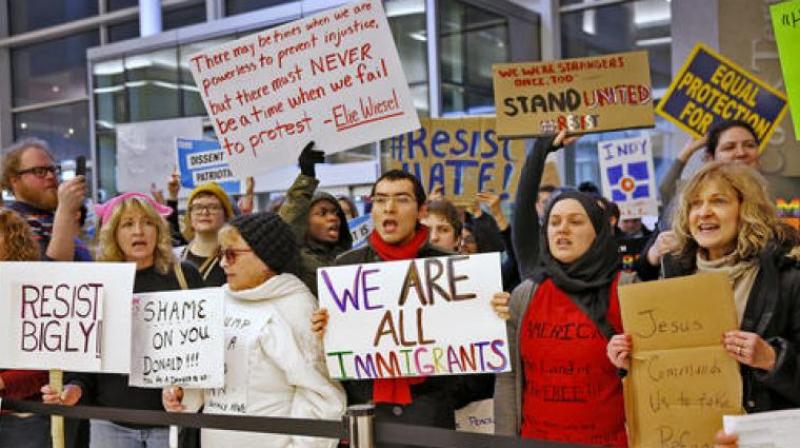Saudi, other Muslims spared ban as US allies: experts

Dubai: Gulf monarchies, notably Saudi Arabia, and other major Muslim nations have been spared the US travel ban because they are crucial allies of Washington and not "failed states", experts say.
President Donald Trump's controversial executive order on Friday singled out citizens from Iran, Iraq, Libya, Somalia, Sudan, Syria and Yemen to prevent "radical Islamic terrorists" from entering the United States.
But the ban, which could still extend to other states, has exempted Muslim-majority nations associated with major attacks in the West.
Out of the 19 hijackers of planes used in the September 11, 2011 attacks, 15 came from Saudi Arabia, also the birthplace of al-Qaeda founder and attack mastermind Osama bin Laden. The other four included the Egyptian plot leader, two Emiratis and a Lebanese.
Saudi Arabia and other Gulf and Arab nations are also home to scores of jihadists who have joined al-Qaeda and its rival Islamic State group, both of which have been behind deadly attacks in Europe.
But the kingdom, cradle of the austere Sunni doctrine of Wahhabism, has traditionally been a strategic ally of Washington.
"Trump appears to consider in line with longstanding mainstream US policy, the Gulf states as crucial allies for the United States government," said Adam Baron, a visiting fellow and Yemen specialist at the European Council on Foreign Relations.
"The nations appear to have been chosen due to their governments' poor relations with the US or their precarious state," he said.
Saudi Arabia has been in war with al-Qaeda for more than a decade, hitting what it calls the "deviant group" with an iron fist. It is also in the US-led coalition fighting IS, along with other Gulf states.
The ban is not about "countries where we have close partnerships with their counter-terrorism forces and where there is a well-developed structure of intelligence cooperation", said Anthony Cordesman, from the Washington-based Centre for Strategic and International Studies.

